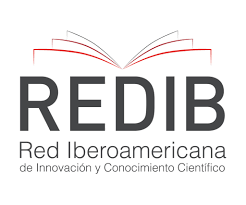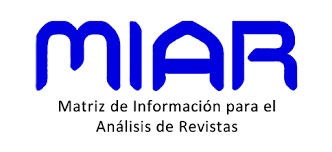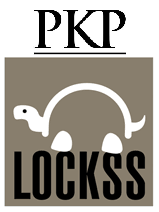John Paul II, bringing people closer to God
DOI:
https://doi.org/10.51743/cpe.64Keywords:
education as a personal relationship, accompaniment, truth, perfection, plenitudeAbstract
To begin to examine the meaning of education in Saint John Paul II is to point clearly to a process of humanization of the person. His writings on human formation show the beauty of a being created by God to reach fullness, a perfectible being who needs to be accompanied as they are being educated. The Pope conceived of education as a process of personalization carried out from reason and the freedom of the person. That education is a close and autonomous accompaniment, to discover, from a relationship between the teacher and student, the truth that surrounds reality: the personal truth contained within the mystery of each person and the Truth, with a capital letter, that tells us about God. The engine and key to education, in all his written work, focuses on the search for truth and the desire to transform reality at the service of our brothers and sisters. Karol Wojtyla believed in the educational community, especially in the Catholic school, as a place of reference and transmission of culture, but also as a place of maturation of faith where the testimony of believers acts as an evangelizing agent.
Downloads
References
BARRIO, J. M. (2010). Elementos de Antropología Pedagógica. Madrid: Rialp. 108 p
JUAN PABLO II. RH, 8.
MORALES, T. (1983). Tesoro Escondido. Madrid: BAC. p.188.
JUAN PABLO II. (1980). Alocución a la UNESCO, 2 de junio, 1980, n. 11; L' Osservatore Romano, Edición en Lengua Española, 15 de junio, p.12.
JUAN PABLO II. (1988). “La trayectoria educativa de los jóvenes”. Discurso a los profesores y estudiantes de la Universidad, de la Academia Militar y de otras escuelas, en la Iglesia de San Agustín, Módena, 4 de junio.
JUAN PABLO II. (2000). Mensaje para la Jornada Mundial de la Paz, 8 de diciembre, n. 20. L'Osservatore Romano, edición en lengua española, 15 de diciembre, p.122.
Juan Pablo II. (1994). Discurso a los participantes en el XIV Congreso Mundial de la Oficina Internacional de Enseñanza Católica, sábado 5 de marzo.
JUAN PABLO II. (1998). Mensaje a la Federación de Institutos de Actividades Educativas de Italia, 24 de noviembre.
Burgos, J. M. (2005). Antropología: una guía para la existencia. Madrid: Palabra. p.64.
JUAN PABLO II. (1994). Discurso a los participantes en el XIV Congreso Mundial de la Oficina internacional de Enseñanza Católica, sábado 5 de marzo.
ÁVILA, A. (2007). La unidad entre cristología y antropología en Juan Pablo II. Un análisis del tema en sus catorce encíclicas. Scripta Theologica 39 (2007/1) pp.37-72.
JUAN PABLO II (2001). Mensaje al IV Encuentro Nacional Italiano de Profesores Universitarios Católicos. Vaticano, 4 de octubre.
JUAN PABLO II. (1989). Discurso a los Educadores Laicos en León (Nicaragua), 4 de marzo.
JUAN PABLO II. (1987). Alocución del Santo Padre a los Obispos de la República Centroafricana en visita ‘Ad Limina Apostolorum, 7 de noviembre de 1987.
JUAN PABLO II (2001). Mensaje al IV Encuentro Nacional Italiano de Profesores Universitarios Católicos. Vaticano, 4 de octubre.
JUAN PABLO II. (1993). Discurso del Santo Padre en el Congreso de la Asociación Italiana de Maestros Católicos, 22 de enero.
JUAN PABLO II. (1993). Comprometeos en la revolución espiritual de la pureza del cuerpo y del corazón. Uganda (Kampala), 6 de febrero.
JUAN PABLO II. (1999). Mensaje para la XIV Jornada mundial de la Juventud «El Padre os ama» (cf. Jn 16, 27), 6 de enero.
JUAN PABLO II. (1989). Discurso a los Educadores Laicos en León (Nicaragua), 4 de marzo.
JUAN PABLO II. (1998). Mensaje a la Federación de Institutos de Actividades Educativas de Italia, Vaticano, 24 de noviembre, n. 3.
JUAN PABLO II. (1991). Centesimus annus, 39.
JUAN PABLO II. (1989). Christifideles laici, 40.
JUAN PABLO II. (1981). Familiaris consortio, 17.
JUAN PABLO II. (1994). Carta a las Familias Gratissimam sane, n. 16.
JUAN PABLO II. (1989). Christifideles laici, 40.
CONCILIO VATICANO II (1966). Apostolicam actuositatem, 11.
JUAN PABLO II. (1978). Al III Congreso Internacional de la Familia organizado por el Instituto de Cooperación Universitaria, lunes 30 de octubre.
CONGREGACIÓN PARA LA EDUCACIÓN CATÓLICA. (2007). Educar juntos en la Escuela Católica, 12. Vaticano, 8 de septiembre.
JUAN PABLO II. (1982). Discurso del Encuentro con los educadores en Granada, 5 de noviembre. DOI: https://doi.org/10.36576/summa.7194
JUAN PABLO II. (1985). Carta apostólica Dilecti amici, a los jóvenes del mundo con ocasión del Año Internacional de la Juventud.
JUAN PABLO II. (1994). Carta a los niños en el año de la Familia, 13 de diciembre.
JUAN PABLO II. (2001). Discurso al Congreso Internacional organizado por el Comité Europeo para la Educación Católica, sábado 28 de abril de 2001.
Juan Pablo II. (2001). Ángelus del domingo 28 de octubre.
JUAN PABLO II. (1998). Mensaje a la Federación de Institutos de Actividades Educativas de Italia. Vaticano, 24 de noviembre.
JUAN PABLO II. (1998). Mensaje a la Federación de Institutos de Actividades Educativas de Italia. Vaticano, 24 de noviembre.
JUAN PABLO II. (1998). Discurso al sexto grupo de obispos de Estados Unidos. Visita “Ad
Limina”, 30 de mayo.
JUAN PABLO II. (1987). Discurso de al congreso de la Organización mundial de los ex alumnos y ex alumnas de la Escuela Católica, 14 de noviembre.
JUAN PABLO II. (1997). Discurso a los miembros de la Conferencia Episcopal de Escocia en visita “Ad limina”, 25 de abril.
JUAN PABLO II. (1987). Centesimus Annus, 54.
JUAN PABLO II. (1989). XXVI Jornada Mundial de Oración por las vocaciones, Vaticano, 2 de febrero.
K. WOJTYLA (2005). El taller del orfebre. Madrid: BAC, p. 7.
Downloads
Published
How to Cite
Issue
Section
License
The author reserves the rights (copyright) of the published works, and the journal encourages and allows their reuse, from the preprint. The works are published in the electronic edition of the journal under a license "Creative Commons Attribution / Attribution-NonCommercial 4.0 International Public License - CC BY-NC 4.0", and can be copied, used, disseminated, transmitted and publicly exhibited.
The author / s partially transfer the property rights (copyright) of this work for the printed and online editions, provided that:
- The authorship and original source of its publication (magazine, publisher and URL of the work) is cited.
- Are not used for commercial purposes.
- The existence and specifications of this user license are mentioned.
It also declares to have respected the ethical principles of research and to be free from any conflict of interest.
"C.P.E." encourages the authors and the scientific community to the maximum promotion and dissemination of the works in their final version through:
1) Your list of contacts (emails) and social networks (Facebook, Twitter, LinkedIn ...).
2) Institutional repository of your University and public repositories (Mendeley, Cosis ...).
3) Scientific social networks (ResearchGate, Academia.edu, Kudos ...).
4) Personal or institutional website, blog, etc.
5) Google Scholar, ORCID, ResearchID, ScopusID, Dimensions, PlumX ...
6) Printed copies purchased directly and sent to specialists for reading and subsequent citation if appropriate.




















1.png)
1.png)

1.png)





.png)
.png)

.png)
1.png)
1.png)
